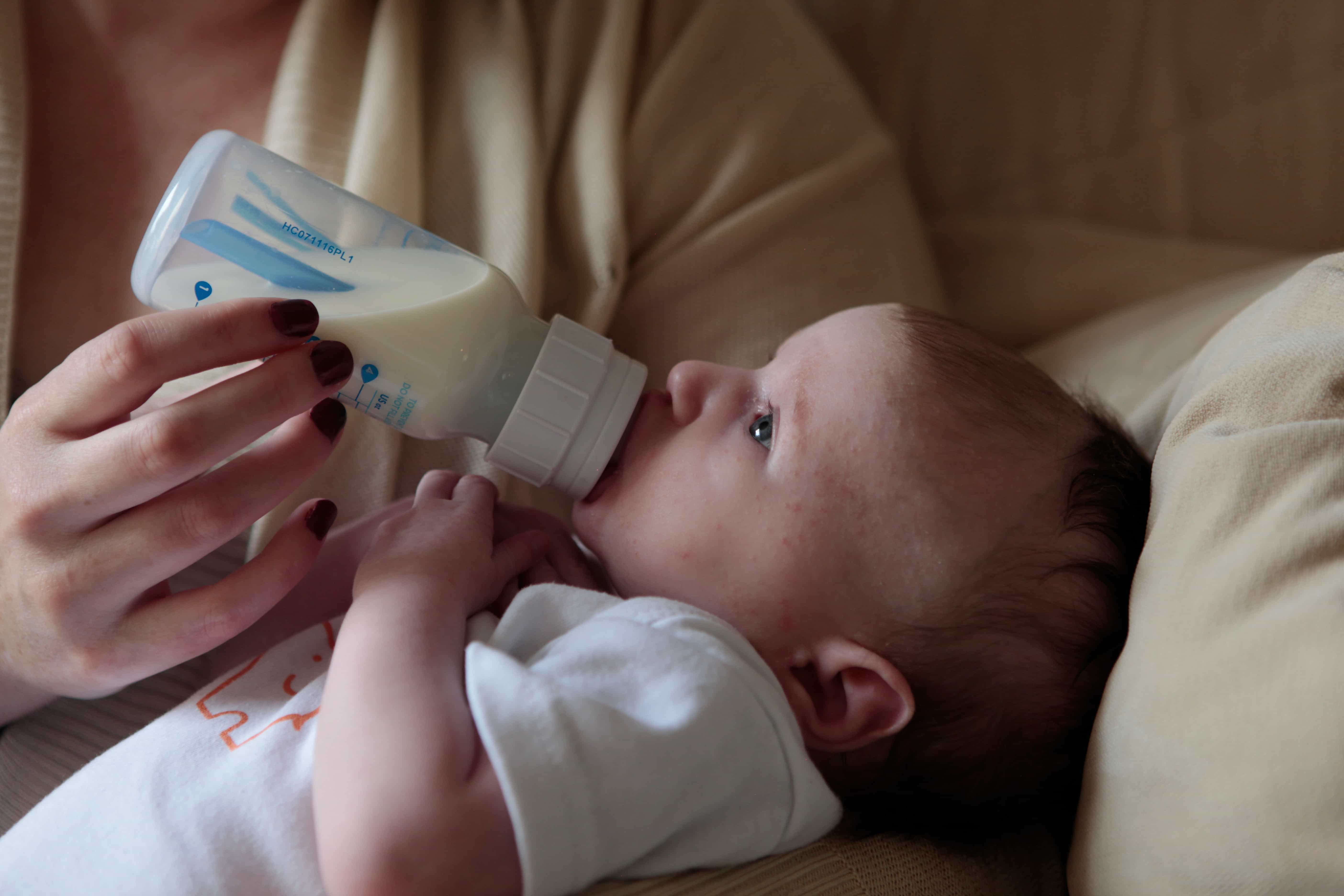Nec Baby Formula Lawsuit

Many parents turn to baby formula as a way to provide extra nourishment to premature and low-weight babies. Some parents fully rely on formula if the mother has had trouble nursing and is not able to provide their child with adequate breast milk. When parents turn to baby formula, they deserve access to formula that is guaranteed to be safe for their newborns.
Unfortunately, some formulas have recently been shown to be unsafe for consumption. High calorie, bovine milk-based baby formula products sold by Similac and Enfamil have been linked to necrotizing enterocolitis, or NEC, a deadly illness that can cause inflammation and necrosis (tissue death) in the intestines.
Similac is manufactured by Abbott Laboratories, while Mead Johnson & Company manufactures Enfamil. Neither manufacturer disclosed the possible risks associated with consuming their products on the product labels.
The baby formula NEC lawsuits allege that newborns who consumed Enfamil and Similac baby formula products later developed NEC and other gastrointestinal conditions, including gut rot and dead bowel. The lawsuits claim that the manufacturers of Similac and Enfamil failed to warn parents of the dangers their cow’s milk-based products posed to newborns.
If you purchased Similac or Enfamil baby formula products for your newborn and your newborn later developed NEC or other gastrointestinal issues, then you could qualify for a baby formula NEC lawsuit and be entitled to recover compensation for financial and non-financial damages that resulted from your infant’s condition.
Necrotizing enterocolitis (NEC) is a gastrointestinal condition primarily observed in premature newborns. It involves inflammation in the intestinal tissue, leading to tissue death. The inflammation associated with NEC can also result in the formation of perforations or holes in the intestinal tract, which allows bacteria to leak into the abdominal cavity. Among premature newborns, NEC is the most prevalent type of gastrointestinal condition, affecting approximately 1 in every 2,000-4,000 infants.
NEC primarily affects infants who are born with a weight of less than 4.5 pounds. These infants constitute the majority of NEC cases. The onset of NEC typically occurs rapidly, usually within a few weeks after birth. Newborns are particularly susceptible to developing NEC due to the underdeveloped state of their intestines and bowels at the early stages of life.

Symptoms of NEC in newborns include:
NEC can also cause other health conditions to develop, including:
While certain cases of necrotizing enterocolitis (NEC) can be managed with medication, severe cases often necessitate surgical intervention. However, surgery poses significant risks, particularly for premature babies due to their underdeveloped bodies. Surgical procedures can potentially lead to permanent injuries in newborns. In some instances, infants may lose a substantial portion of their intestinal tract, requiring a bowel transplant to sustain their lives. It is crucial to consider the potential dangers and complications associated with surgery, particularly in the context of the fragile health condition of premature infants affected by NEC.
Frequently Asked Questions
Simply put, when a lawsuit involves multiple plaintiffs against one or more defendants, it is known as a mass tort action. In other words, a mass tort is civil litigation that consists of a single accidental or intentional action that causes many people to sustain injuries. The biggest benefit of joining a mass tort claim is that it increases your chances of recovering damages from entities such as product and pharmaceutical manufacturers. Mass tort actions are different from class actions because each plaintiff’s case will be reviewed individually.
Since a significant number of mass tort cases involve some form of negligence, the main categories are as follows.
Due to the nature of mass tort cases, they are of course more complex than standard personal injury claims. Also, since they typically involve massive payouts to the plaintiffs, they can and often do take years before both parties arrive at a resolution.
Below, you will find a few reasons why your mass tort claim may take longer.
To expedite your case and allow it to proceed efficiently, mass tort lawyers advise plaintiffs to: